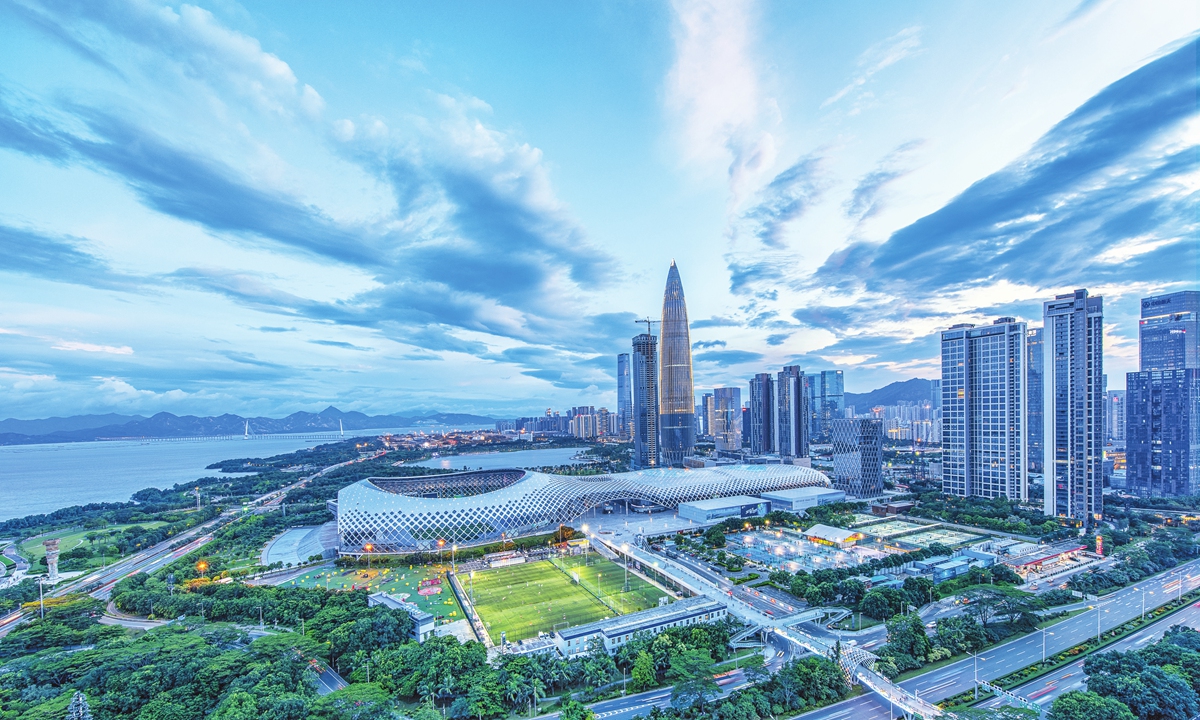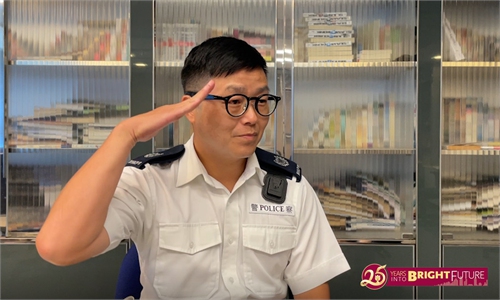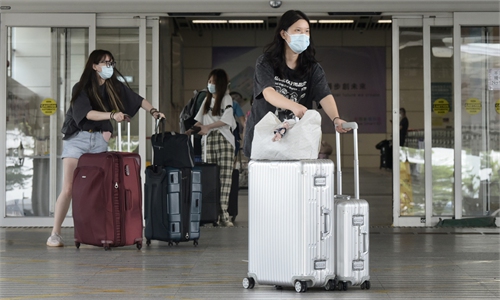
Shenzhen Photo: VCG
Shenzhen, a city that has pioneered reform and opening-up in China, is now blazing a trail in the country's regulation for emerging technology trends, with a first-of-its-kind regulation tailored for smart and connected vehicle management scheduled to come into force on August 1, local media reported on Wednesday.
The new regulation is set to fill the legal gap for domestic intelligent connected vehicles and clarify rules for liability and auto insurance coverage in the event of car accidents, industry insiders said, expecting the trailblazing regulation to ramp up the commercialization of self-driving solutions.
The regulation stipulates that smart and connected cars on a list of certified vehicles under the country's approval-based market access mechanism for vehicles need to be registered with traffic management authorities before hitting the road. Under the new ordinance, self-driving will be permitted in areas and sections designated by the city's traffic management department, the Shenzhen Special Zone Daily reported on Wednesday.
Under the new regulation, intelligent connected vehicles are required to pack an external indicator light that must be turned on in self-driving mode to serve as a safety signal for other vehicles and passengers.
The regulation is the country's first mandate to clarify responsibility for cars at a minimum of level 3 autonomous driving, according to China Galaxy Securities.
According to the US-based Society of Automotive Engineering, autonomous driving ranges from level 0 - entirely driver-piloted - to level 5, fully driverless under all conditions. Level 3 indicates a demarcation between driver support systems and advanced autonomy driving, and offers conditional autonomous driving.
The majority of self-driving car models is at level 3 or below and enables only conditional driving, and will hand over driving tasks to humans in some cases. As a result, there have been worries over potential safety hazards when drivers cannot be entirely hands-free, might lose focus and therefore fail to immediately respond to a handover request from the self-driving system, Zeng Zhiling, managing director of LMC Automotive Consulting in Shanghai, told the Global Times on Wednesday.
By 2030, vehicles at level 2 or 3 will account for over 70 percent of all automated car models, while cars at level 4 and above will make up 20 percent of the total, according to a roadmap for smart car technology unveiled at the end of 2020.
That suggests determining liable parties and insurance policies applicable to accident claims will be key to commercializing the self-driving sector, Zeng said, reckoning that the Shenzhen regulation will resonate across the country.
The regulation provides that drivers will bear responsibility in the event of traffic breaches and liabilities if they are seated in the cockpit. For entirely driverless vehicles, if violations or accidents occur when the self-driving system is in control with no human driver in the cockpit, the car owner and operator will in principle be liable for the violation or accident, but the penalties won't be factored into the driver violation point system.
Furthermore, if an accident is attributed to vehicle defects, the driver or car owner is entitled to file for compensation with carmakers and vendors after fulfilling their penalty obligations.
The new ordinance also urges smart car firms to create data security management systems and privacy protection plans, and also to locate data storage servers within China.
Shenzhen's spearheading of the country's smart vehicle regulation attests to the city's leading status in smart car tech. Last year, the city's intelligent connected auto sector raked in 106.6 billion yuan ($15.9 billion) in revenue, the local report said, and the city opened 145 kilometers of road sections for test driving.
In an effort to align the legal and regulatory framework with the local push for smart cars, the Shenzhen Municipal People's Congress tapped into the special zone's legislative power to clear the legal roadblocks for local intelligent connected vehicle development, with the new legislation drawing boundaries for road testing, registration, usage management, traffic violations and the handling of accidents for smart vehicles.
The regulation empowers the municipal government to opt for eligible administrative regions to be fully open to road testing, according to the report. Unidentified staffers with the local traffic bureau were cited as revealing that the city will launch road tests in suitable areas between the second half of this year and next year.



